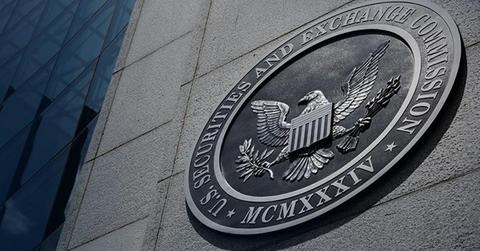Accredited Investor Requirements and Rationale, Explained
What is an accredited investor? Here's a brief explainer on the requirements to be an accredited investor and the rationale behind them.
June 24 2022, Published 2:59 p.m. ET

When companies need to raise capital, they often turn to accredited investors — individuals and entities with a certain level of net worth or meeting other criteria. Those who wish to invest in certain securities that aren’t registered with financial authorities must be accredited investors. What is an accredited investor?
Non-accredited investors can buy and trade stocks without any interference. However, for certain securities, the sellers are only allowed to sell to accredited investors based on criteria set by the SEC. The requirements for becoming an accredited investor are meant to ensure protection for those investors, due to the higher level of risk within these investments.

Unlike buying securities listed on the NYSE or Nasdaq, accredited investors must have certain income, net worth, or knowledge to buy into unregistered securities.
Accredited investors must meet criteria to ensure they can withstand risk.
The guidelines set forth by the SEC are in place to protect investors from making unsound investments. Since securities that are unregistered with the SEC may not disclose pertinent information about the company to investors, there's a much higher risk level for accredited investors.
You must meet at least one of the criteria involving income, net worth, asset size, professional experience, or governance status to become an accredited investor.
An individual seeking to be an accredited investor must have an annual income of at least $200,000 for two years ($300,000 for a joint income, as with a spouse). If the income requirement isn't met, a $1 million net worth as an individual or couple may suffice. For calculations of net worth, the person must exclude the value of their primary residence.
Alternatively, holding a Series 7, 65, or 82 license can qualify you as accredited because of the knowledge required to obtain that certification.
A trust with at least $5 million in assets may qualify if the person directing the investment is knowledgeable. An entity with at least $5 million in investments may qualify as well. If an entity has only accredited investors as its equity owners it's qualified as an accredited investor.
Accredited investor requirements are based on financial indicators or professional knowledge.
If you're either financially equipped to handle investment risk, or you have significant knowledge and experience with investing, you're able to be an accredited investor. The SEC doesn't require both of these stipulations to be met, because one or the other is considered sufficient to protect the investor from major losses.

You don’t have to follow a process to become an accredited investor.
Rather than undergoing any formal certification process, if you meet one of the criteria such as income or net worth, you can be involved as an accredited investor. The seller of unregistered securities is responsible for verifying details such as your income, net worth, or investment expertise.
Some companies offer shares directly to accredited investors.
When seeking to raise capital to grow their businesses, companies may offer a private placement to accredited investors. This means they offer their securities directly to accredited investors only. Although this may seem like a privilege, it's also the intention that investors understand the much greater risk they take on than with traditional investments.
Accredited investors may invest in deals involving venture capital, hedge funds, angel investing, and other riskier ventures.
